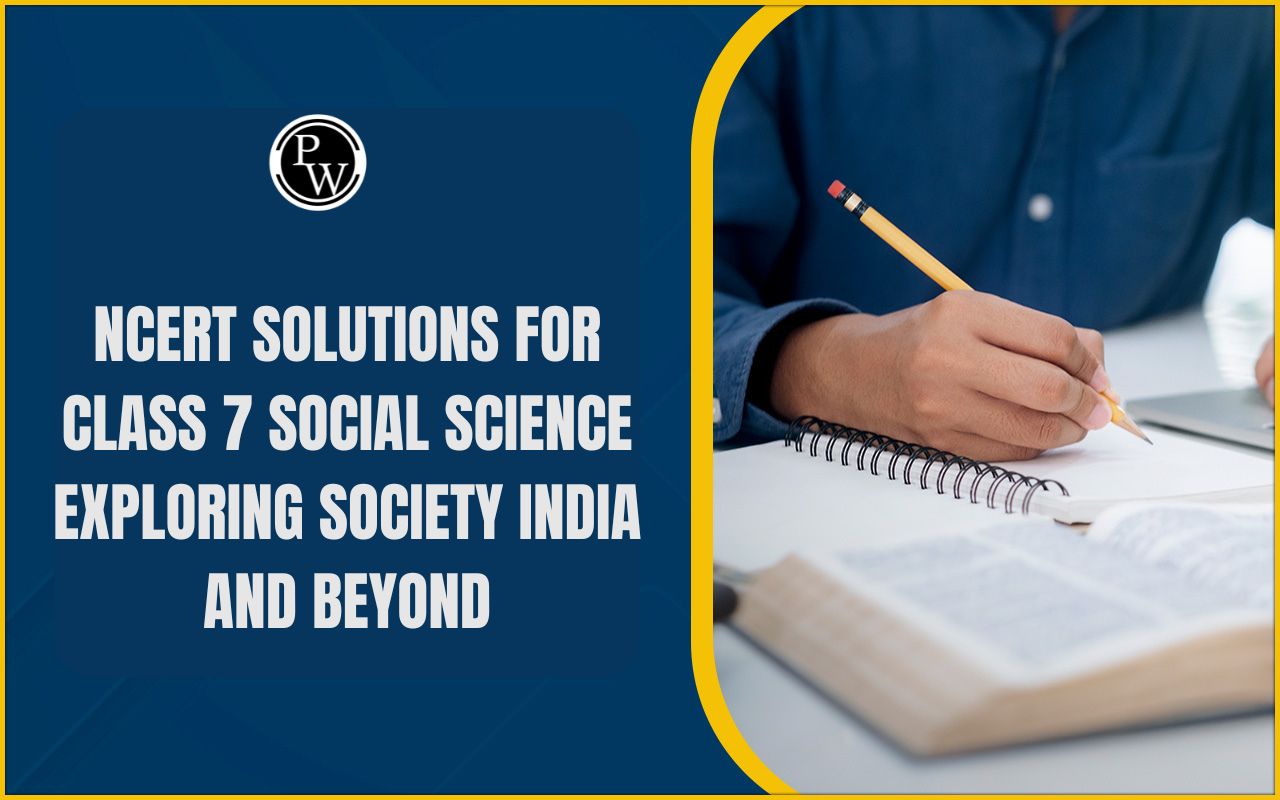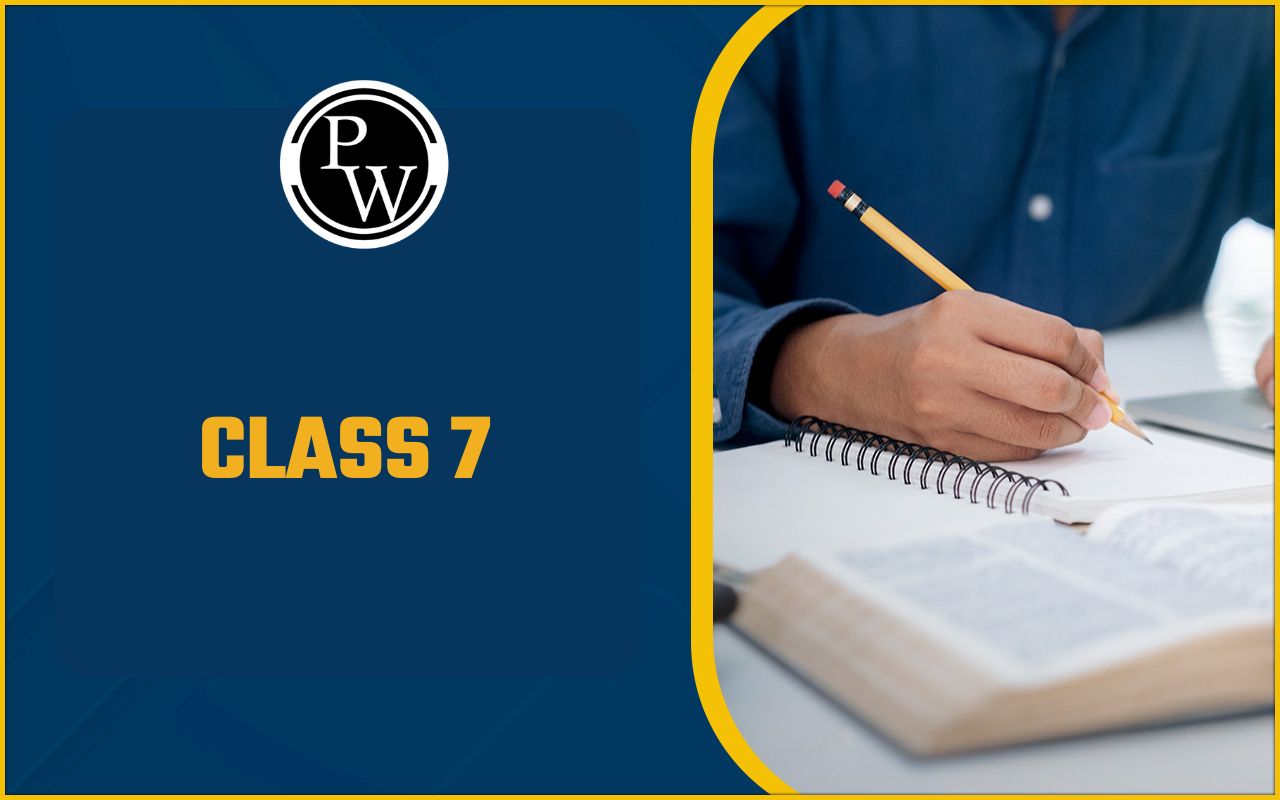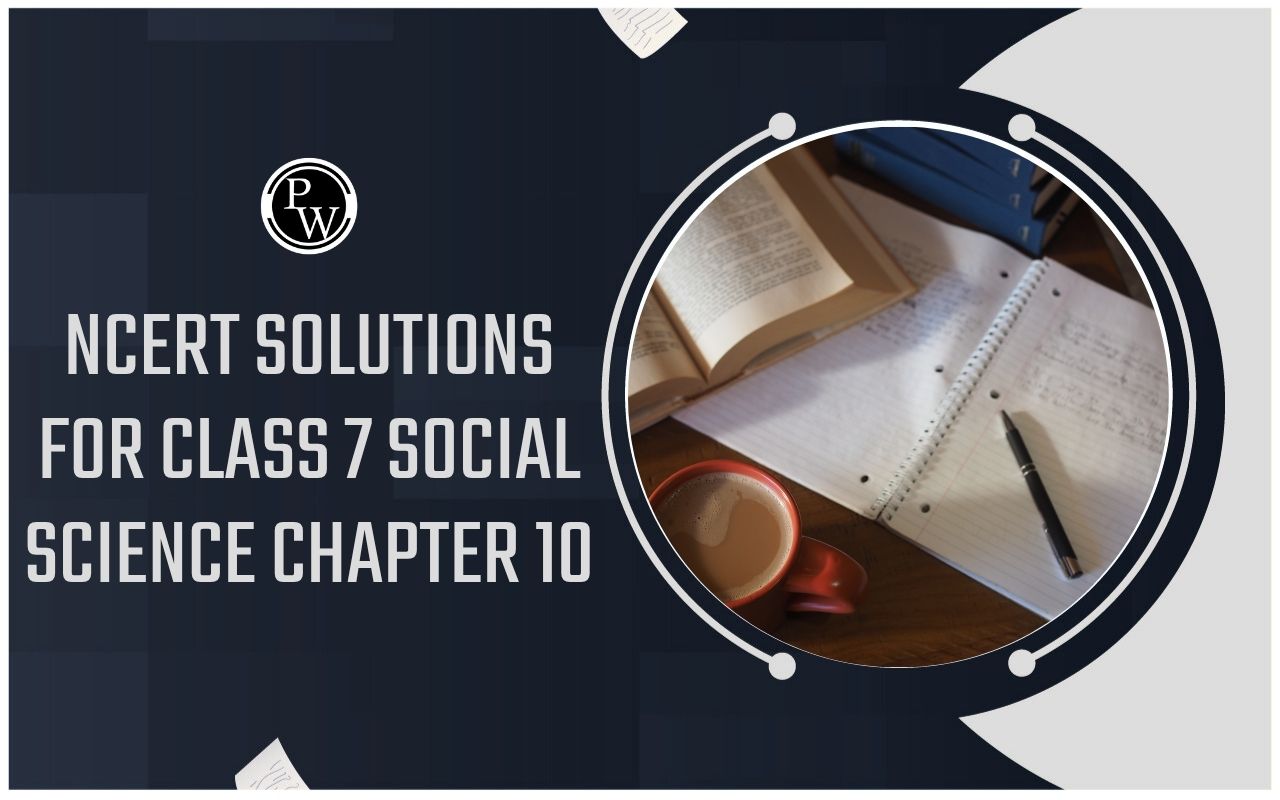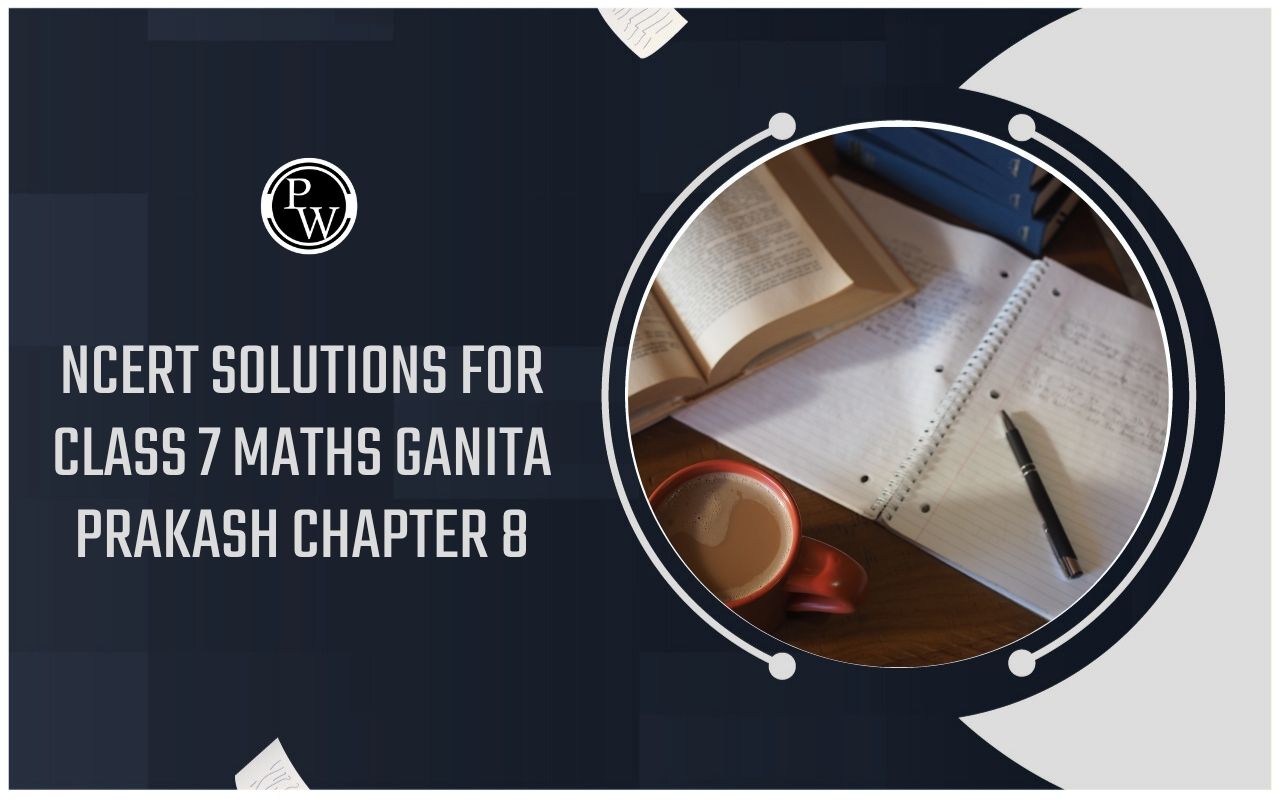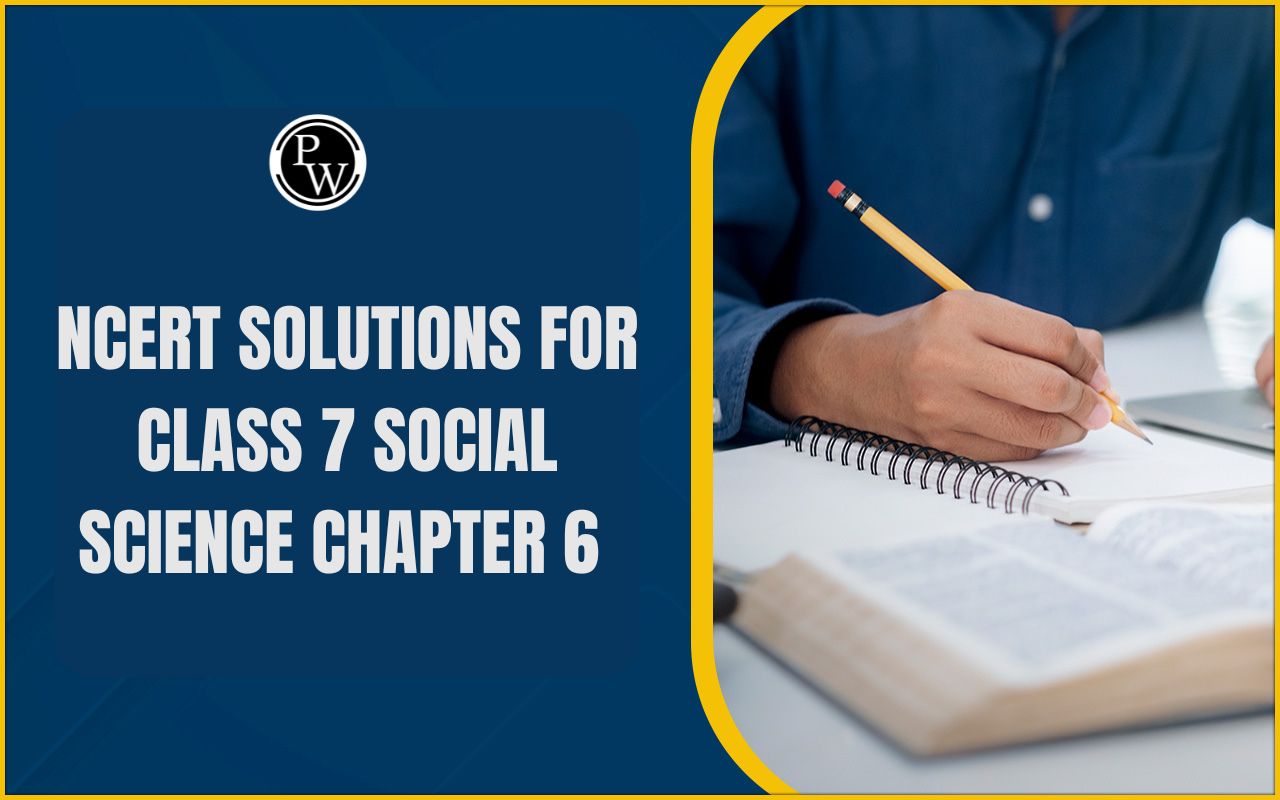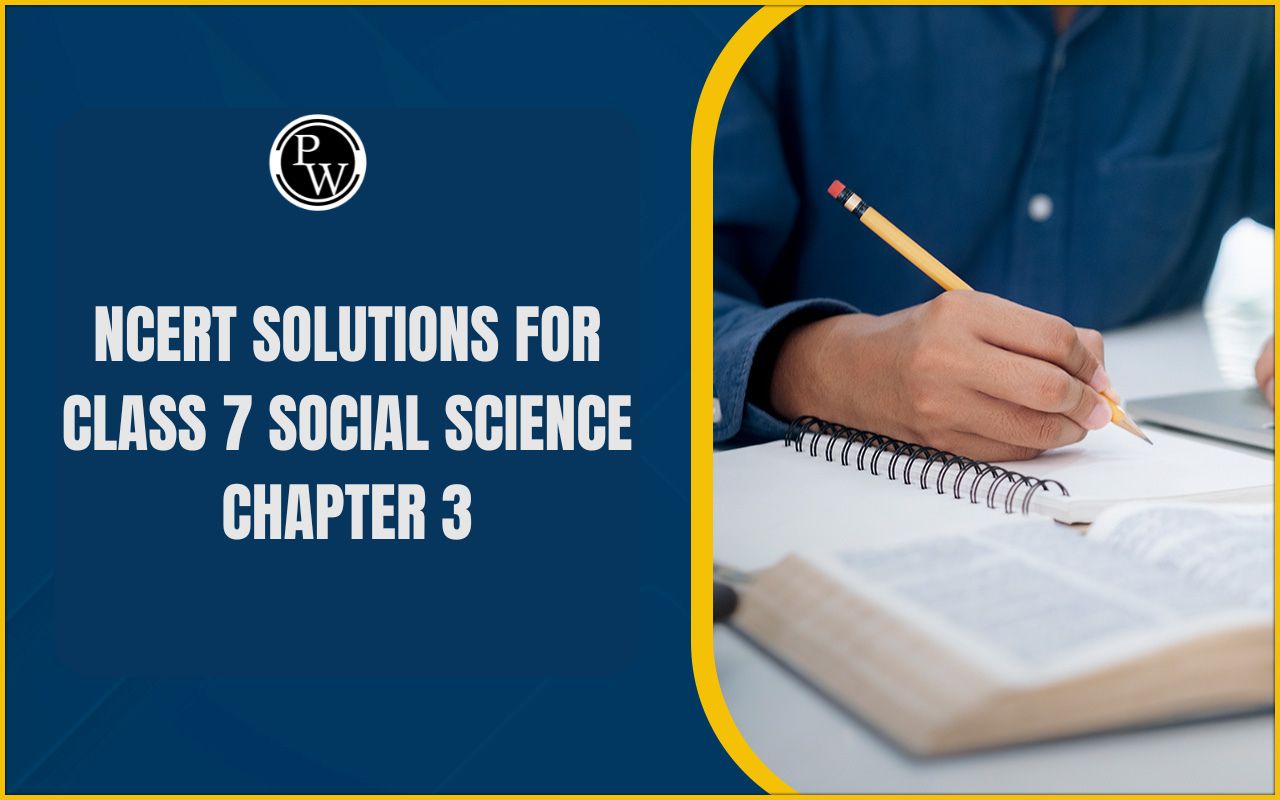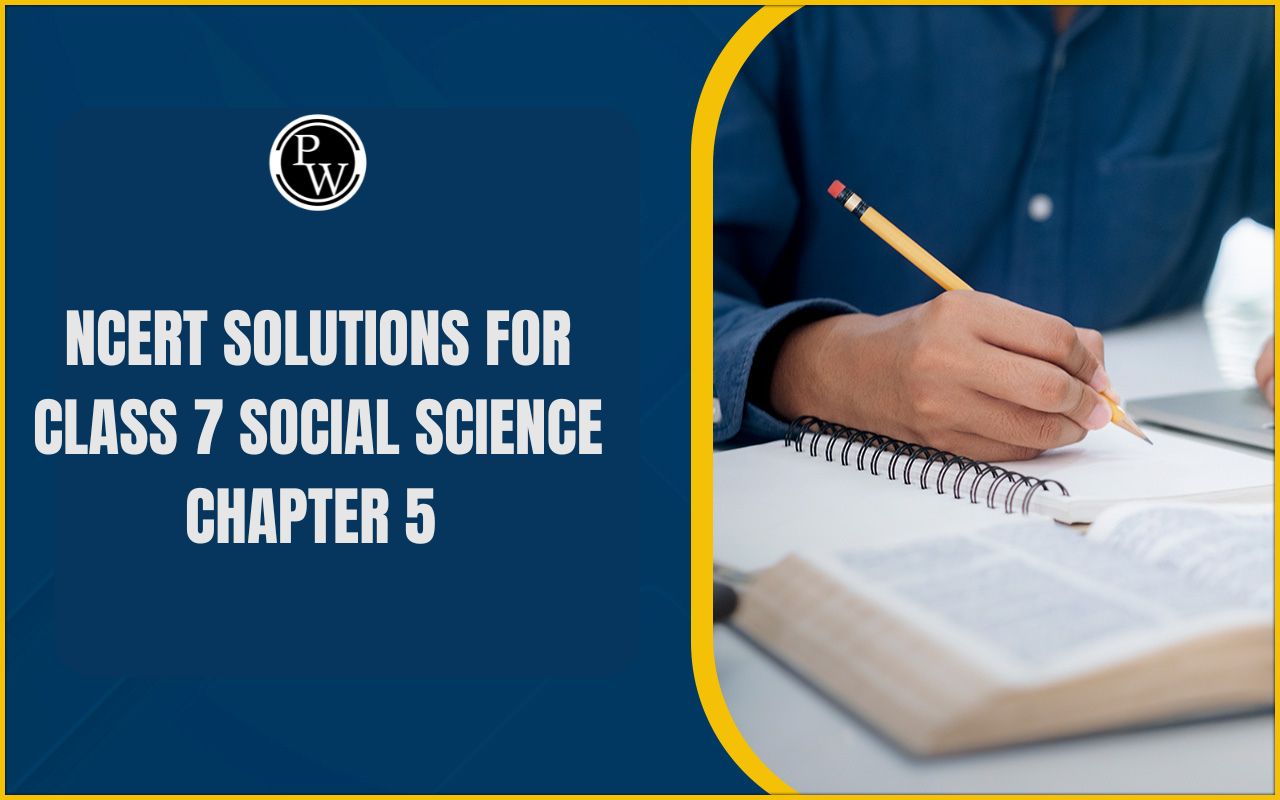
NCERT Solutions for Class 7 Social Science Civics Chapter 1
NCERT Solutions for Class 7 Social Science Civics Chapter 1 : NCERT Solutions for Chapter 1 of Class 7 Social Science and Political Life are highly regarded study materials that students actively seek. These notes for CBSE Class 7 Political Science Chapter 1 are meticulously crafted by Physics Wallah's top Social Science educators. They encompass responses to all crucial questions relevant to examinations, aiming to bolster students' fundamental comprehension. You can initiate your preparation by effortlessly acquiring the free PDF solutions for Class 7 Civics Chapter 1. Physics Wallah offers these NCERT Solutions to facilitate an easy and engaging study experience for students.NCERT Solutions for Class 7 Social Science Civics Chapter 1 On Equality Overview
The solutions to the exercises in Chapter 1 of NCERT Class 7 Civics, titled "On Equality," are provided in the "Social and Political Life – II" textbook. Crafted by subject experts, these answers adhere to the syllabus. Utilizing Physics Wallah's NCERT Solutions for preparation can aid students in achieving high marks in exams. Additionally, it offers insights into the appropriate length of responses based on the marks allotted for a particular question.NCERT Solutions for Class 7 Social Science Civics Chapter 1 On Equality
NCERT Solutions for Class 7 Social Science Civics Chapter 1: "On Equality" cover key topics that are essential for a comprehensive understanding of the chapter. Some of the key topics include:- Introduction to Equality: The chapter commences by introducing the fundamental concept of equality in society. It encourages students to contemplate how individuals, such as Kanta, Omprakash Valmiki, and the Ansaris, may experience inequality in different facets of their lives. This initial exploration sets the stage for a deeper understanding of societal disparities.
- Dignity and its Importance: One of the central themes is the exploration of dignity through the lens of real-life experiences. The chapter elucidates how individuals, regardless of their background or social status, inherently possess dignity. Understanding the importance of dignity becomes crucial in the broader context of promoting equality and eliminating discriminatory practices.
- Role of the Government: The chapter delves into the pivotal role played by the government in addressing and rectifying inequalities. It discusses how governments pass laws and institute policies aimed at creating a more equitable society. This section emphasizes the proactive commitment of the government to uplift marginalized sections and promote a fair and just social order.
- Inequality in the United States: As a broader perspective, the chapter briefly touches upon the issue of inequality in a global context, specifically referencing the United States. This inclusion broadens students' awareness, helping them understand that issues of equality transcend geographical boundaries and are relevant on a global scale.
 By covering these key topics, the NCERT Solutions for Class 7 Social Science Civics Chapter 1 provide a comprehensive exploration of the concept of equality. The solutions offer detailed explanations, enabling students to grasp the nuances of each topic and fostering a deeper understanding of societal dynamics related to equality.
By covering these key topics, the NCERT Solutions for Class 7 Social Science Civics Chapter 1 provide a comprehensive exploration of the concept of equality. The solutions offer detailed explanations, enabling students to grasp the nuances of each topic and fostering a deeper understanding of societal dynamics related to equality.
| CBSE Syllabus Class 7 | |
| CBSE Class 7 English Syllabus | CBSE Class 7 Math Syllabus |
| CBSE Class 7 Social Science Syllabus | CBSE Class 7 Science Syllabus |
NCERT Solutions for Class 7 Social Science Civics Chapter 1 Important Short & Long Questions
Here are important long and short questions for NCERT Solutions for Class 7 Social Science Civics Chapter 1:Short Questions:
1) Define Equality and Dignity: Answer:- Equality: Equality is the state of being equal, especially in terms of rights, opportunities, and status within a society.
- Dignity: Dignity is the quality or state of being worthy, honored, or esteemed.
Long Questions:
1) Discuss the Various Forms of Inequality in Society: Answer: In society, inequality manifests in various forms, including economic, social, and gender-based disparities. Economic inequality is seen in unequal distribution of wealth, while social inequality may involve discrimination based on caste or ethnicity. Gender inequality pertains to differential treatment based on gender. 2) Elaborate on the Role of the Government in Promoting Equality: Answer: The government promotes equality through legislative measures, affirmative action policies, and social welfare programs. For instance, laws against discrimination, reservations for marginalized communities, and schemes addressing poverty aim to create a more egalitarian society. 3) Compare and Contrast the Notions of Equality in Different Countries: Answer: Notions of equality vary globally. A comparative analysis may explore the approaches of different countries. For instance, the United States may emphasize individual liberties, while Scandinavian countries focus on social and economic equality through robust welfare systems. 4) Evaluate the Effectiveness of Government Policies in Ensuring Equality: Answer: The effectiveness of government policies can be assessed by examining their impact on reducing disparities. Analysis may involve looking at indicators such as poverty rates, educational attainment, and access to healthcare to evaluate the success of implemented policies. 5) Reflect on the Significance of Dignity in the Context of Equality: Answer: Dignity is integral to equality as it ensures the fair treatment and respect of every individual. Respecting the dignity of all citizens contributes to the creation of a society where everyone has an equal opportunity to lead a fulfilling life. 6) Explore the Link Between Education and Equality: Answer: Education plays a crucial role in promoting equality. Analyze how accessible and quality education contributes to reducing socio-economic disparities. Discuss the impact of educational policies on marginalized communities and their empowerment. 7) Examine the Intersectionality of Inequality: Answer: Inequality often intersects across various dimensions such as gender, race, and class. Discuss how these intersections create unique challenges for individuals. Explore the need for comprehensive policies that address multiple layers of inequality. 8) Evaluate the Role of Civil Society in Advocating for Equality: Answer: Civil society organizations and movements play a vital role in advocating for equality. Evaluate the impact of non-governmental initiatives, protests, and advocacy campaigns in challenging systemic inequalities and influencing policy changes. 9) Discuss the Global Perspective on Equality and Human Rights: Answer: Delve into the global discourse on equality and human rights. Analyze international agreements, conventions, and organizations that aim to address global inequalities. Explore how countries collaborate to promote a more equitable world. 10) Reflect on Personal Experiences with Equality and Inequality: Answer: Encourage students to reflect on their own experiences with equality and inequality. They can share personal anecdotes or observations, highlighting instances where they witnessed or experienced disparities. This exercise fosters self-awareness and empathy. These responses provide comprehensive answers to both short and long questions, aiding students in understanding the key concepts explored in Chapter 1 of Class 7 Social Science Civics.NCERT Solutions for Class 7 Social Science Civics Chapter 1 On Equality Extra Questions
1) Discuss the Historical Context of the Struggles for Equality: Answer: The struggles for equality have deep historical roots. Explore historical events, movements, and figures that paved the way for the fight against inequality. Analyze how these historical contexts shaped contemporary perspectives on equality. 2) Evaluate the Effectiveness of Legal Mechanisms in Ensuring Equality: Answer: Legal mechanisms, such as anti-discrimination laws, are designed to ensure equality. Evaluate the effectiveness of these legal frameworks in addressing various forms of inequality. Discuss challenges in implementation and propose potential improvements. 3) Analyze the Impact of Economic Policies on Social Inequality: Answer: Economic policies significantly influence social inequality. Analyze how economic decisions, resource distribution, and taxation policies contribute to disparities. Discuss the role of economic empowerment in fostering equality. 4) Examine the Role of Media in Shaping Perceptions of Equality: Answer: Media plays a crucial role in shaping societal perceptions. Examine how media representations contribute to stereotypes and either reinforce or challenge notions of equality. Discuss the responsibility of media in promoting a more inclusive narrative. 5) Define Equality and Its Different Dimensions: Answer: Equality is the state of being equal in rights, opportunities, and status. It encompasses various dimensions, including social, economic, and political equality. Social equality focuses on fair treatment regardless of identity, economic equality addresses wealth disparities, and political equality ensures equal participation in governance. 6) How Does Gender Inequality Manifest in Everyday Life? Answer: Gender inequality manifests in various ways, such as unequal pay, limited access to education for girls, and gender-based violence. Explore specific instances of gender inequality in daily life and discuss their implications. 7) Discuss the Role of Affirmative Action in Promoting Equality: Answer: Affirmative action policies aim to address historical inequalities by providing preferential treatment to marginalized groups. Discuss the rationale behind affirmative action, its advantages, and criticisms. Analyze how it contributes to creating a more equitable society. 8) Explore the Connection Between Equality and Social Justice: Answer: Social justice seeks to create a society where everyone enjoys fair and equal opportunities. Explore the intrinsic connection between equality and social justice. Discuss how addressing inequality is fundamental to achieving social justice. These extra questions provide an in-depth exploration of Chapter 1, "On Equality," in Class 7 Social Science Civics. They cover a range of topics, encouraging critical thinking and a thorough understanding of the concept of equality.CBSE Board Exam Centre List 2024
NCERT Solutions for Class 7 Social Science Civics Chapter 1 On Equality Exercise Questions
The solutions for Chapter 1, "On Equality," are provided below. Students are encouraged to explore NCERT Solutions for Class 7 for additional chapters. Q.1 In a democracy, why is universal adult franchise important? Solution: In a democracy, universal adult franchise is crucial as it is grounded in the principle of equality. It asserts that every adult in a country, regardless of wealth or community affiliations, possesses one vote. Q.2 Read the box on Article 15 and state two ways in which the article addresses inequality. Solution: Article 15 tackles inequality by addressing discrimination based on factors such as religion, race, caste, gender, and place of birth. Additionally, it emphasizes that public places funded wholly or partially by the government, such as wells, tanks, bathing ghats, and roads, should not be subject to discrimination based on the mentioned criteria. Q.3 In what ways was Omprakash Valmiki’s experience similar to that of the Ansaris? Solution: Omprakash Valmiki faced discrimination based on his caste, while the Ansaris encountered discrimination due to their religion. The commonality lies in both being subjected to discrimination based on their birth, a practice prohibited under Article 15. Omprakash Valmiki, as a Dalit, was barred from sitting with his classmates and was compelled to sweep the school premises, violating his dignity. The Ansaris were denied a flat rental due to their religion differing from the majority in the apartment complex. Q.4 What do you understand by the term “all personnel are equal before the law”? Why do you think it is important in a democracy? Solution: The term "all persons are equal before the law" asserts that all citizens, irrespective of their social or economic background, must abide by the same laws. No individual should face discrimination in the eyes of the law based on race, religion, caste, or gender. In a democracy, the significance of this principle lies in its core idea of equality. Democracy thrives on providing equal rights and recognition to all citizens. Without addressing inequalities related to race, religion, and gender, the very essence of democracy would be compromised.NCERT Solutions for Class 7 Social Science Civics Chapter 1 PDF Download
As we conclude this insightful exploration of the NCERT Solutions for Class 7 Social Science Civics Chapter 1 , it’s clear that these resources can play a pivotal role in the educational journey of young learners. Understanding civics at such a formative stage shapes responsible citizens and informed individuals. To provide your child or student with the best support in mastering these concepts, look no further than Physics Wallah's comprehensive solutions. Their meticulously crafted materials enhance learning experiences and clarify complex ideas. Don't miss out on strengthening your grasp of Civics - download the top-notch NCERT Solutions PDF from Physics Wallah today and take a significant step towards educational success!NCERT Solutions for Class 7 Social Science Civics Chapter 1 PDF Download
NCERT Solutions for Class 7 Social Science Civics Chapter 1 On Equality Summary
NCERT Class 7 Social and Political Life – II Chapter 1 delves into various aspects related to equality, both within the context of India and other democracies. The chapter encompasses the following key topics:- Equal Right to Vote: The chapter emphasizes the fundamental democratic principle of the equal right to vote. It explores the concept that every adult, regardless of socio-economic status or community affiliation, has the same voting rights in a democracy.
- Other Kinds of Equality: Beyond the right to vote, the chapter explores different dimensions of equality. This includes aspects such as social, economic, and political equality, highlighting the multifaceted nature of the concept.
- Recognising Dignity: The chapter addresses the crucial aspect of recognizing human dignity. It explores instances where individuals have faced discrimination based on factors like caste, religion, or gender, emphasizing the need to uphold the dignity of every citizen.
- Equality in Indian Democracy: Focusing on the Indian democratic setup, the chapter discusses the principles of equality enshrined in the Constitution. It touches upon legal provisions and safeguards aimed at ensuring equal treatment for all citizens.
- Issues of Equality in Other Democracies: The chapter broadens its scope by examining challenges related to equality in democracies beyond India. This comparative analysis provides students with a global perspective on the complexities associated with ensuring equality in diverse societies.
- Challenge of Democracy: The chapter concludes by addressing the challenges faced by democracies in upholding the ideals of equality. It prompts students to critically think about the complexities involved in maintaining equality within democratic frameworks.
NCERT Solutions for Class 7 Social Science Civics Chapter 1 FAQs
Why is the concept of universal adult franchise important in a democracy?
The concept of universal adult franchise is crucial in a democracy as it reflects the principle of equality. In a democratic setup, every adult, irrespective of their wealth, caste, or community, is granted the right to vote. This ensures equal participation and representation, upholding the democratic ideals of equality.
How does Article 15 address inequality in the Indian Constitution?
Article 15 of the Indian Constitution addresses inequality by prohibiting discrimination based on various grounds, including religion, race, caste, gender, place of birth, etc. It ensures that individuals are not subjected to discriminatory practices, promoting the idea of equality before the law.
What similarities can be drawn between the experiences of Omprakash Valmiki and the Ansaris?
Both Omprakash Valmiki and the Ansaris faced discrimination based on their birth. Omprakash Valmiki, a Dalit, was treated unfairly at school due to his caste. The Ansaris were denied a flat on rent because of their religious identity. Both instances highlight discrimination based on birth, which is against the principles of equality outlined in Article 15.
Why is the principle of "all persons are equal before the law" important in a democracy?
The principle of "all persons are equal before the law" signifies that every citizen, regardless of their background, is subject to the same laws. This principle is fundamental in a democracy as it upholds the core democratic value of equality. It ensures that no individual faces discrimination based on factors like race, religion, caste, or gender in the eyes of the law.
How does the chapter address the challenges faced by democracies in upholding equality?
The chapter concludes by discussing the challenges democracies encounter in maintaining equality. It prompts students to critically think about the complexities involved in upholding the ideals of equality within diverse democratic frameworks.
🔥 Trending Blogs
Talk to a counsellorHave doubts? Our support team will be happy to assist you!

Check out these Related Articles
Free Learning Resources
PW Books
Notes (Class 10-12)
PW Study Materials
Notes (Class 6-9)
Ncert Solutions
Govt Exams
Class 6th to 12th Online Courses
Govt Job Exams Courses
UPSC Coaching
Defence Exam Coaching
Gate Exam Coaching
Other Exams
Know about Physics Wallah
Physics Wallah is an Indian edtech platform that provides accessible & comprehensive learning experiences to students from Class 6th to postgraduate level. We also provide extensive NCERT solutions, sample paper, NEET, JEE Mains, BITSAT previous year papers & more such resources to students. Physics Wallah also caters to over 3.5 million registered students and over 78 lakh+ Youtube subscribers with 4.8 rating on its app.
We Stand Out because
We provide students with intensive courses with India’s qualified & experienced faculties & mentors. PW strives to make the learning experience comprehensive and accessible for students of all sections of society. We believe in empowering every single student who couldn't dream of a good career in engineering and medical field earlier.
Our Key Focus Areas
Physics Wallah's main focus is to make the learning experience as economical as possible for all students. With our affordable courses like Lakshya, Udaan and Arjuna and many others, we have been able to provide a platform for lakhs of aspirants. From providing Chemistry, Maths, Physics formula to giving e-books of eminent authors like RD Sharma, RS Aggarwal and Lakhmir Singh, PW focuses on every single student's need for preparation.
What Makes Us Different
Physics Wallah strives to develop a comprehensive pedagogical structure for students, where they get a state-of-the-art learning experience with study material and resources. Apart from catering students preparing for JEE Mains and NEET, PW also provides study material for each state board like Uttar Pradesh, Bihar, and others
Copyright © 2026 Physicswallah Limited All rights reserved.
